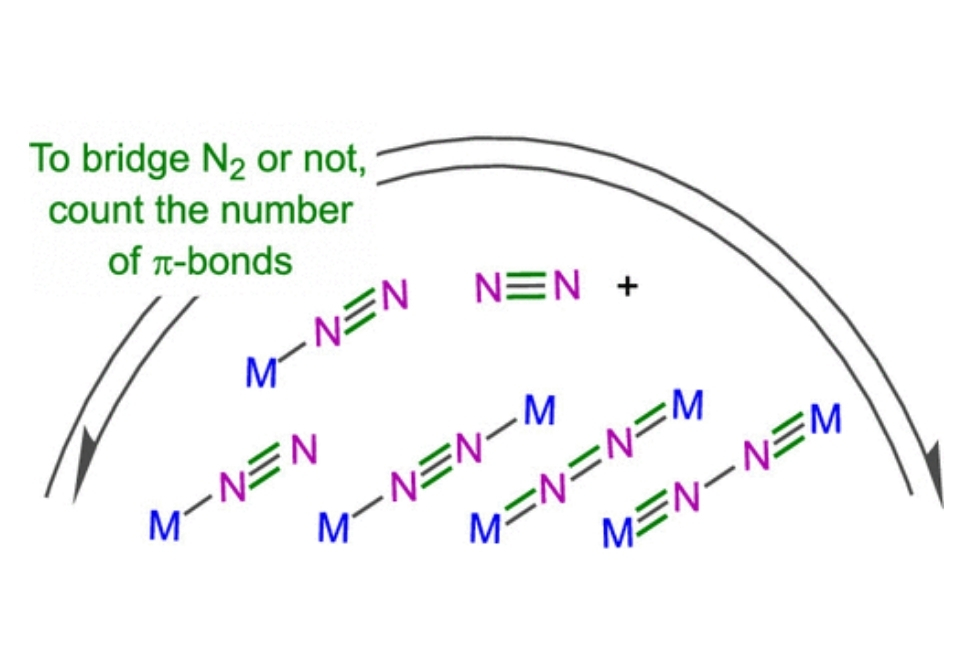Understanding Terminal versus Bridging End-on N2 Coordination in Transition Metal Complexes
Abstract
Terminal and bridging end-on coordination of N2 to transition metal complexes offer possibilities for distinct pathways in ammonia synthesis and N2 functionalization. Here we elucidate the fundamental factors controlling the two binding modes and determining which is favored for a given metal–ligand system, using both quantitative density functional theory (DFT) and qualitative molecular orbital (MO) analyses. The Gibbs free energy for converting two terminal MN2 complexes into a bridging MNNM complex and a free N2 molecule (2ΔGeq°) is examined through systematic variations of the metal and ligands; values of ΔGeq° range between +9.1 and −24.0 kcal/mol per M–N2 bond. We propose a model that accounts for these broad variations by assigning a fixed π-bond order (BOπ) to the triatomic terminal MNN moiety that is equal to that of the free N2 molecule, and a variable BOπ to the bridging complexes based on the character (bonding or antibonding) and occupancy of the π-MOs in the tetratomic MNNM core. When the conversion from terminal to bridging coordination and free N2 is associated with an increase in the number of π-bonds (ΔBOeqπ > 0), the bridging mode is greatly favored; this condition is satisfied when each metal provides 1, 2, or 3 electrons to the π-MOs of the MNNM core. When each metal in the bridging complex provides 4 electrons to the MNNM π-MOs, ΔBOeqπ = 0; the equilibrium in this case is approximately ergoneutral and the direction can be shifted by dispersion interactions.
Citation
Understanding Terminal versus Bridging End-on N2 Coordination in Transition Metal Complexes
Lynn S. Yamout, Mohamad Ataya, Faraj Hasanayn, Patrick L. Holland, Alexander J. M. Miller, and Alan S. Goldman
Journal of the American Chemical Society 2021 143 (26), 9744-9757
DOI: 10.1021/jacs.1c01146


